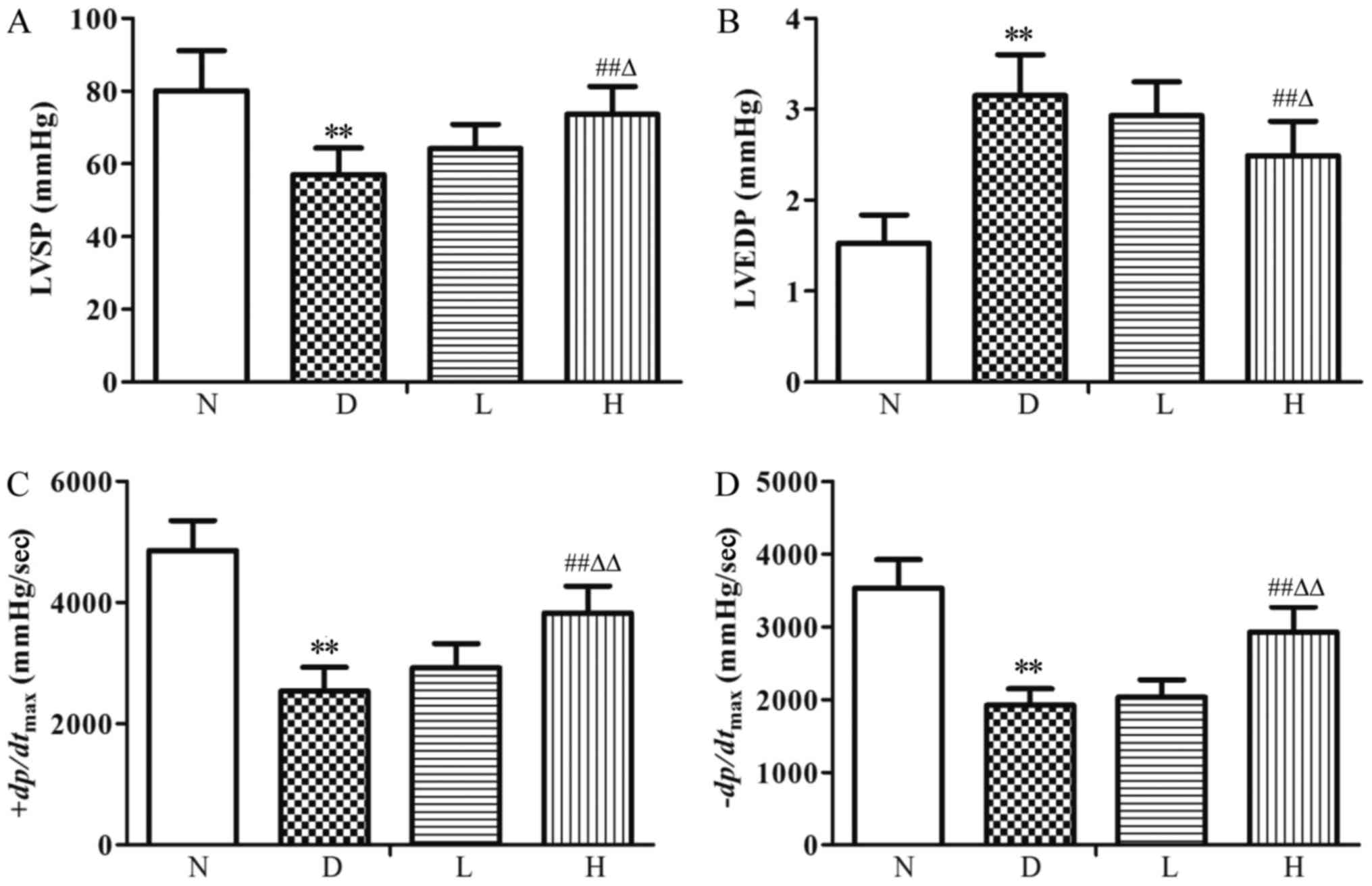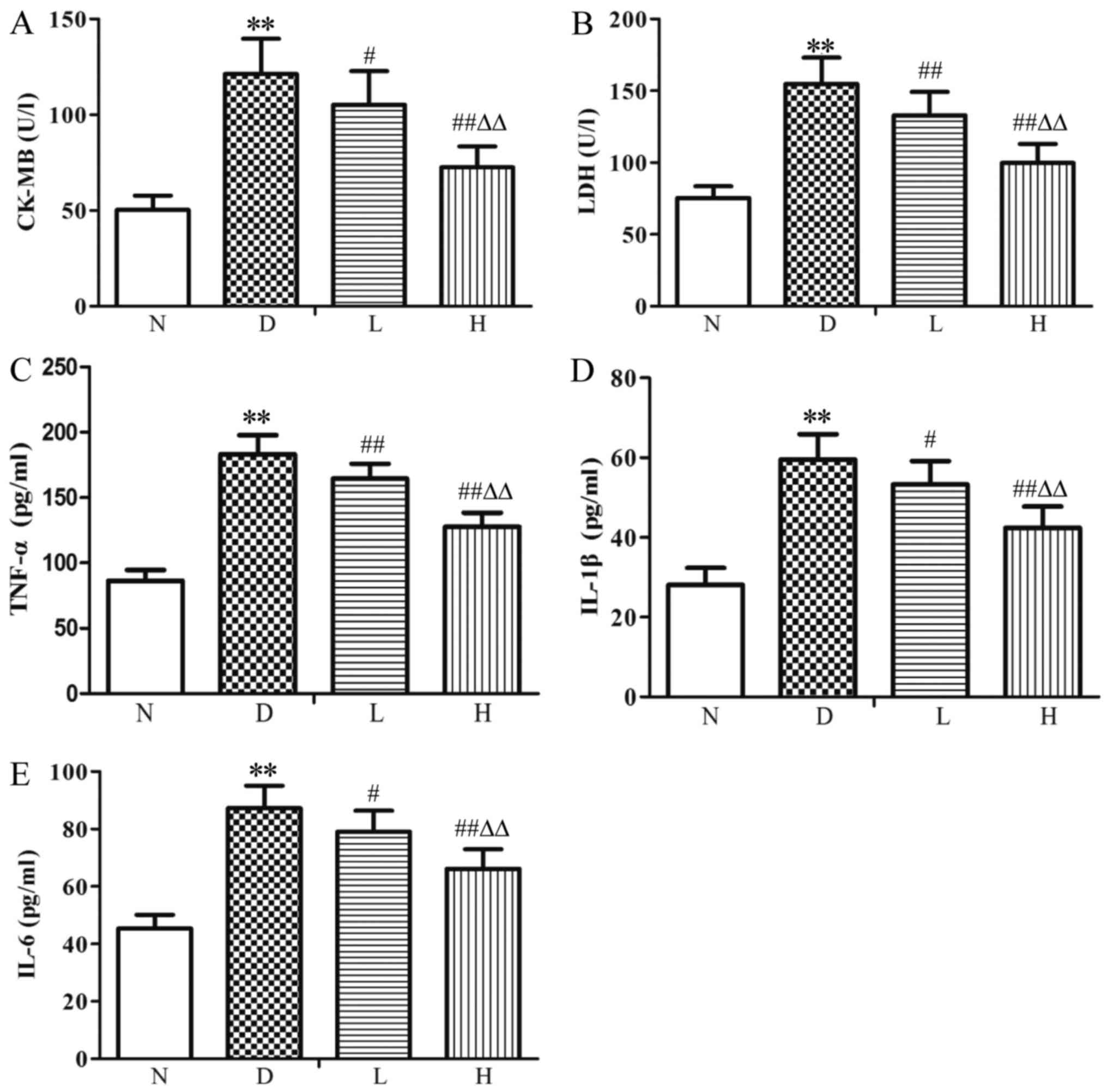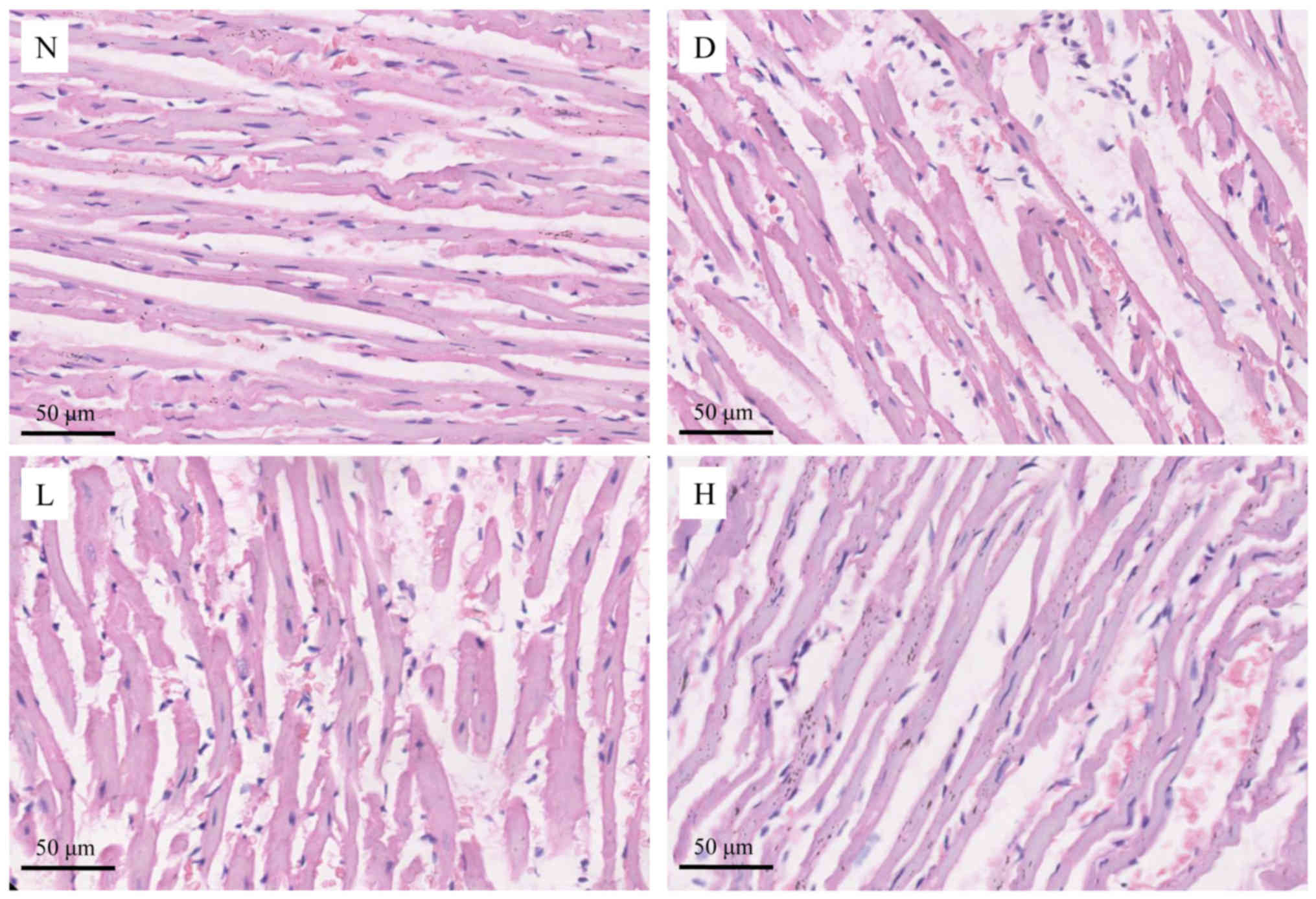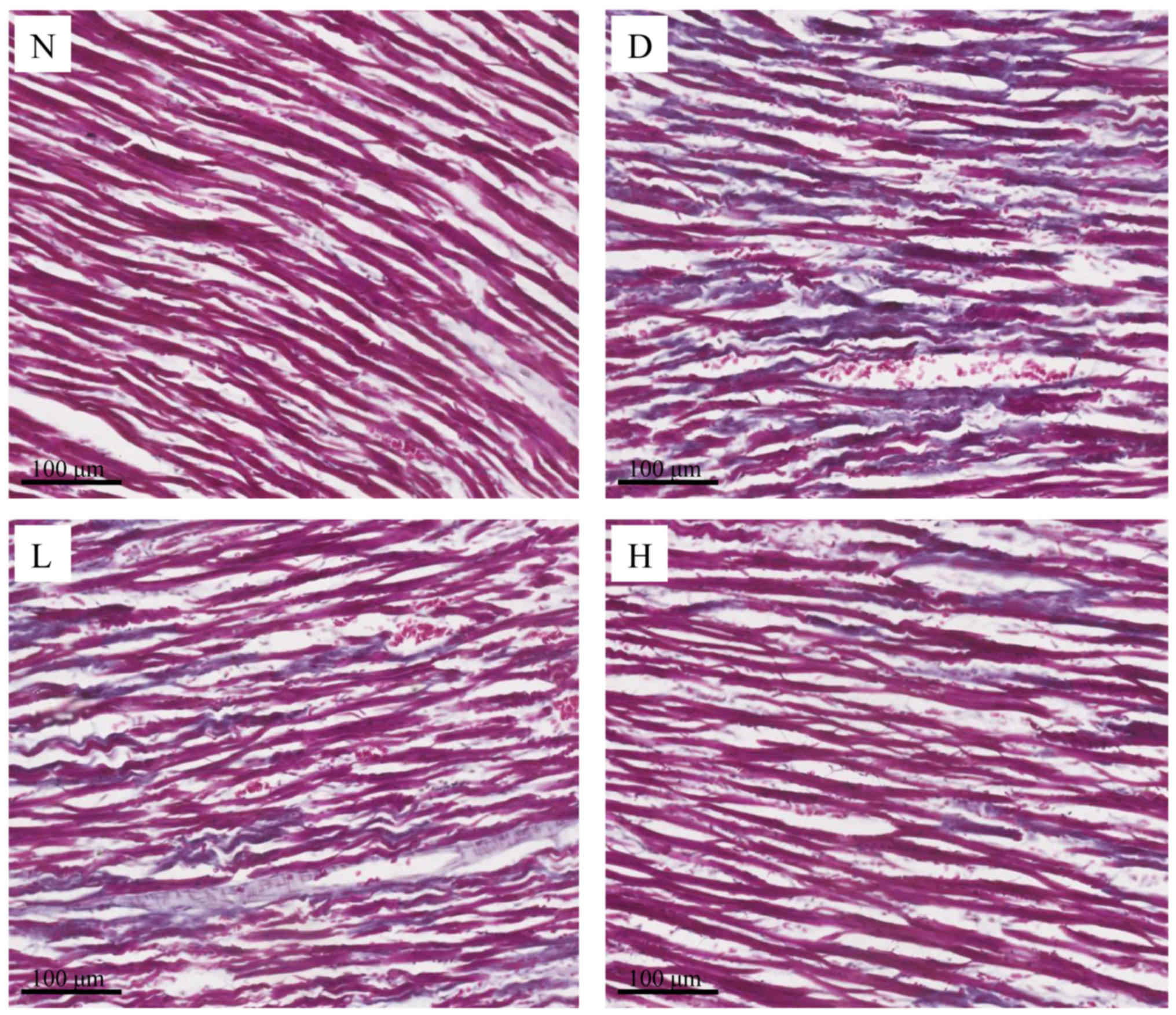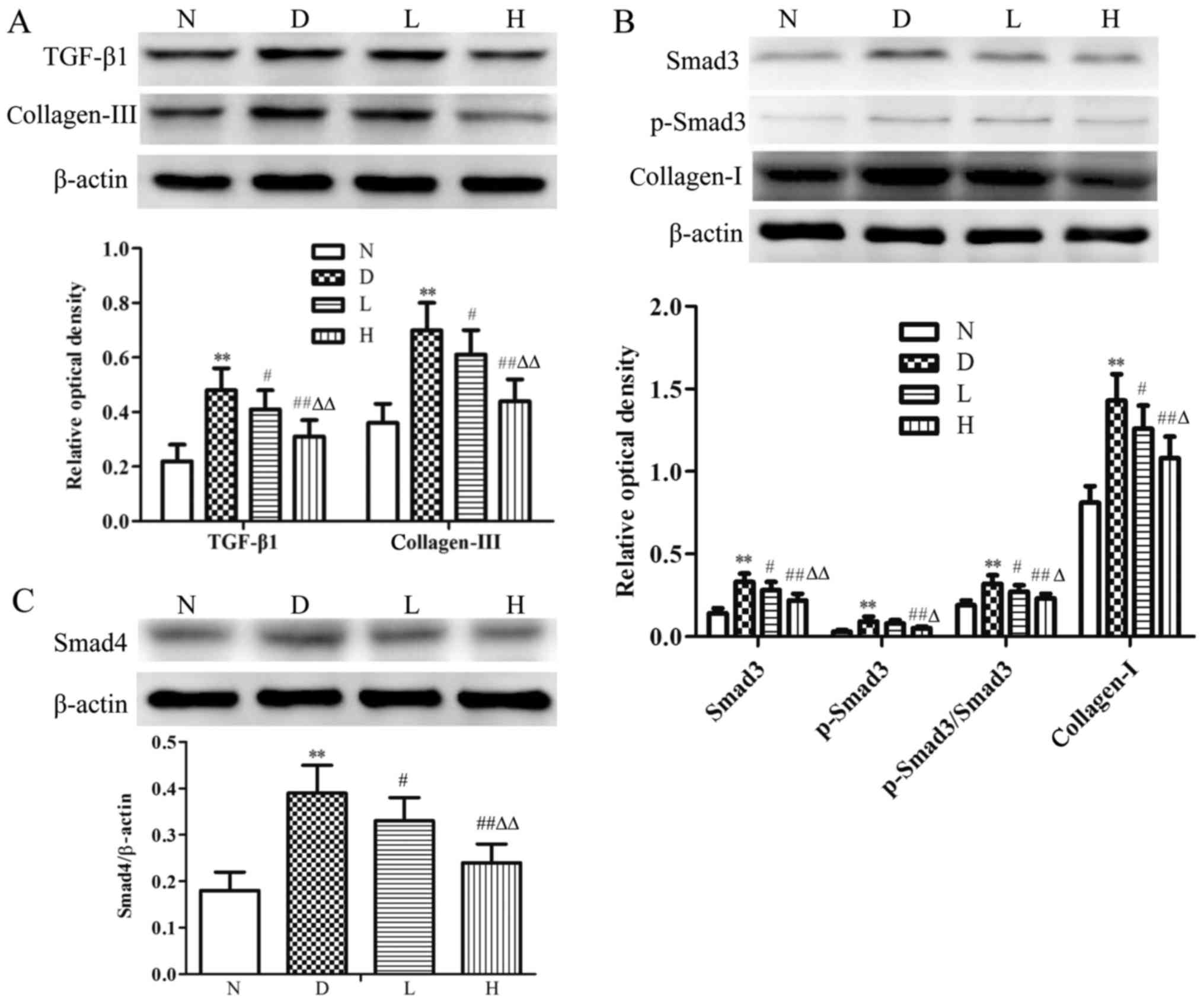|
1
|
Mohan V, Seedat YK and Pradeepa R: The
rising burden of diabetes and hypertension in southeast Asian and
African regions: Need for effective strategies for prevention and
control in primary health care settings. Int J Hypertens.
2013:4090832013. View Article : Google Scholar : PubMed/NCBI
|
|
2
|
Ward ML and Crossman DJ: Mechanisms
underlying the impaired contractility of diabetic cardiomyopathy.
World J Cardiol. 6:577–584. 2014. View Article : Google Scholar : PubMed/NCBI
|
|
3
|
Aneja A, Tang WH, Bansilal S, Garcia MJ
and Farkouh ME: Diabetic cardiomyopathy: Insights into
pathogenesis, diagnostic challenges and therapeutic options. Am J
Med. 121:748–757. 2008. View Article : Google Scholar : PubMed/NCBI
|
|
4
|
Miki T, Yuda S, Kouzu H and Miura T:
Diabetic cardiomyopathy: Pathophysiology and clinical features.
Heart Fail Rev. 18:149–166. 2013. View Article : Google Scholar : PubMed/NCBI
|
|
5
|
Hu X, Bai T, Xu Z, Liu Q, Zheng Y and Cai
L: Pathophysiological fundamentals of diabetic cardiomyopathy.
Compr Physiol. 7:693–711. 2017. View Article : Google Scholar : PubMed/NCBI
|
|
6
|
Fujiu K, Wang J and Nagai R:
Cardioprotective function of cardiac macrophages. Cardiovasc Res.
102:232–239. 2014. View Article : Google Scholar : PubMed/NCBI
|
|
7
|
Cunnington RH, Nazari M and Dixon IM:
c-Ski, Smurf2 and Arkadia as regulators of TGF-beta signaling: New
targets for managing myofibroblast function and cardiac fibrosis.
Can J Physiol Pharmacol. 87:764–772. 2009. View Article : Google Scholar : PubMed/NCBI
|
|
8
|
Liu X, Liang E, Song X, Du Z, Zhang Y and
Zhao Y: Inhibition of Pin1 alleviates myocardial fibrosis and
dysfunction in STZ-induced diabetic mice. Biochem Biophys Res
Commun. 479:109–115. 2016. View Article : Google Scholar : PubMed/NCBI
|
|
9
|
Zhang Y, Zhang L, Zhang Y, Xu JJ, Sun LL
and Li SZ: The protective role of liquiritin in high
fructose-induced myocardial fibrosis via inhibiting NF-κB and MAPK
signaling pathway. Biomed Pharmacother. 84:1337–1349. 2016.
View Article : Google Scholar : PubMed/NCBI
|
|
10
|
Patisaul HB and Jefferson W: The pros and
cons of phytoestrogens. Front Neuroendocrinol. 31:400–419. 2010.
View Article : Google Scholar : PubMed/NCBI
|
|
11
|
Guo TL, Germolec DR, Zheng JF, Kooistra L,
Auttachoat W, Smith MJ, White KL and Elmore SA: Genistein protects
female nonobese diabetic mice from developing type 1 diabetes when
fed a soy- and alfalfa-free diet. Toxicol Pathol. 43:435–448. 2015.
View Article : Google Scholar : PubMed/NCBI
|
|
12
|
Elmarakby AA, Ibrahim AS, Faulkner J,
Mozaffari MS, Liou GI and Abdelsayed R: Tyrosine kinase inhibitor,
genistein, reduces renal inflammation and injury in
streptozotocin-induced diabetic mice. Vascul Pharmacol. 55:149–156.
2011. View Article : Google Scholar : PubMed/NCBI
|
|
13
|
Kim MJ and Lim Y: Protective effect of
short-term genistein supplementation on the early stage in
diabetes-induced renal damage. Mediators inflamm. 2013:5102122013.
View Article : Google Scholar : PubMed/NCBI
|
|
14
|
Gupta SK, Dongare S, Mathur R, Mohanty IR,
Srivastava S, Mathur S and Nag TC: Genistein ameliorates cardiac
inflammation and oxidative stress in streptozotocin-induced
diabetic cardiomyopathy in rats. Mol Cell Biochem. 408:63–72. 2015.
View Article : Google Scholar : PubMed/NCBI
|
|
15
|
Ganai AA and Husain M: Genistein
attenuates D-GalN induced liver fibrosis/chronic liver damage in
rats by blocking the TGF-β/Smad signaling pathways. Chem Biol
Interact. 261:80–85. 2017. View Article : Google Scholar : PubMed/NCBI
|
|
16
|
Sung MJ, Kim DH, Jung YJ, Kang KP, Lee AS,
Lee S, Kim W, Davaatseren M, Hwang JT, Kim HJ, et al: Genistein
protects the kidney from cisplatin-induced injury. Kidney Int.
74:1538–1547. 2008. View Article : Google Scholar : PubMed/NCBI
|
|
17
|
Kayama Y, Raaz U, Jagger A, Adam M,
Schellinger IN, Sakamoto M, Suzuki H, Toyama K, Spin JM and Tsao
PS: Diabetic cardiovascular disease induced by oxidative stress.
Int J Mol Sci. 16:25234–25263. 2015. View Article : Google Scholar : PubMed/NCBI
|
|
18
|
Maulik SK, Prabhakar P, Dinda AK and Seth
S: Genistein prevents isoproterenol-induced cardiac hypertrophy in
rats. Can J Physiol Pharmacol. 90:1117–1125. 2012. View Article : Google Scholar : PubMed/NCBI
|
|
19
|
Fan Y, Wang C, Zhang Y, Hang P, Liu Y, Pan
Z, Wang N and Du Z: Genistein ameliorates adverse cardiac effects
induced by arsenic trioxide through preventing cardiomyocytes
apoptosis. Cell Physiol Biochem. 31:80–91. 2013. View Article : Google Scholar : PubMed/NCBI
|
|
20
|
Yu Y, Jia XJ, Zong QF, Zhang GJ, Ye HW, Hu
J, Gao Q and Guan SD: Remote ischemic postconditioning protects the
heart by upregulating ALDH2 expression levels through the PI3K/Akt
signaling pathway. Mol Med Rep. 10:536–542. 2014. View Article : Google Scholar : PubMed/NCBI
|
|
21
|
Schmidt F, Knobbe CB, Frank B, Wolburg H
and Weller M: The topoisomerase II inhibitor, GEN, induces G2/M
arrest and apoptosis in human malignant glioma cell lines. Oncol
Rep. 19:1061–1066. 2008.PubMed/NCBI
|
|
22
|
Yu JY, Lee JJ, Lim Y, Kim TJ, Jin YR,
Sheen YY and Yun YP: Genistein inhibits rat aortic smooth muscle
cell proliferation through the induction of p27kip1. J Pharmacol
Sci. 107:90–98. 2008. View Article : Google Scholar : PubMed/NCBI
|
|
23
|
Pillai MS and Shivakumar K: Genistein
abolishes nucleoside uptake by cardiac fibroblasts. Mol Cell
Biochem. 332:121–125. 2009. View Article : Google Scholar : PubMed/NCBI
|
|
24
|
Kain V, Kumar S and Sitasawad SL:
Azelnidipine prevents cardiac dysfunction in
streptozotocin-diabetic rats by reducing intracellular calcium
accumulation, oxidative stress and apoptosis. Cardiovasc Diabetol.
10:972011. View Article : Google Scholar : PubMed/NCBI
|
|
25
|
Li CJ, Lv L, Li H and Yu DM: Cardiac
fibrosis and dysfunction in experimental diabetic cardiomyopathy
are ameliorated by alpha-lipoic acid. Cardiovasc Diabetol.
11:732012. View Article : Google Scholar : PubMed/NCBI
|
|
26
|
Asbun J and Villarreal FJ: The
pathogenesis of myocardial fibrosis in the setting of diabetic
cardiomyopathy. J Am Coll Cardiol. 47:693–700. 2006. View Article : Google Scholar : PubMed/NCBI
|
|
27
|
Pan Z, Zhao W, Zhang X, Wang B, Wang J,
Sun X, Liu X, Feng S, Yang B and Lu Y: Scutellarin alleviates
interstitial fibrosis and cardiac dysfunction of infarct rats by
inhibiting TGF-β1 expression and activation of p38-MAPK and ERK1/2.
Br J Pharmacol. 162:688–700. 2011. View Article : Google Scholar : PubMed/NCBI
|
|
28
|
Cutroneo KR: TGF-beta-induced fibrosis and
SMAD signaling: Oligo decoys as natural therapeutics for inhibition
of tissue fibrosis and scarring. Wound Repair Regen. 15 Suppl
1:S54–S60. 2007. View Article : Google Scholar : PubMed/NCBI
|
|
29
|
Itoh S, Itoh F, Goumans MJ and Ten Dijke
P: Signaling of transforming growth factor-beta family members
through Smad protein. Eur J Biochem. 267:6954–6967. 2000.
View Article : Google Scholar : PubMed/NCBI
|
|
30
|
Hata A and Chen YG: TGF-β signaling from
receptors to smads. Cold Spring Harb Perspect Biol. 8:a0022612016.
View Article : Google Scholar
|
|
31
|
Ko JW, Shin NR, Park SH, Kim JS, Cho YK,
Kim JC, Shin IS and Shin DH: Pine bark extract
(Pycnogenol®) suppresses cigarette smoke-induced
fibrotic response via transforming growth factor-β1/Smad family
member 2/3 signaling. Lab Anim Res. 33:76–83. 2017. View Article : Google Scholar : PubMed/NCBI
|
|
32
|
Xu F, Liu C, Zhou D and Zhang L:
TGF-β/SMAD pathway and its regulation in hepatic fibrosis. J
Histochem Cytochem. 64:157–167. 2016. View Article : Google Scholar : PubMed/NCBI
|
|
33
|
Jeon WY, Shin IS, Shin HK, Jin SE and Lee
MY: Aqueous extract of gumiganghwaltang, a traditional herbal
medicine, reduces pulmonary fibrosis by transforming growth
factor-β1/Smad signaling pathway in murine model of chronic asthma.
PLoS One. 11:e01648332016. View Article : Google Scholar : PubMed/NCBI
|















